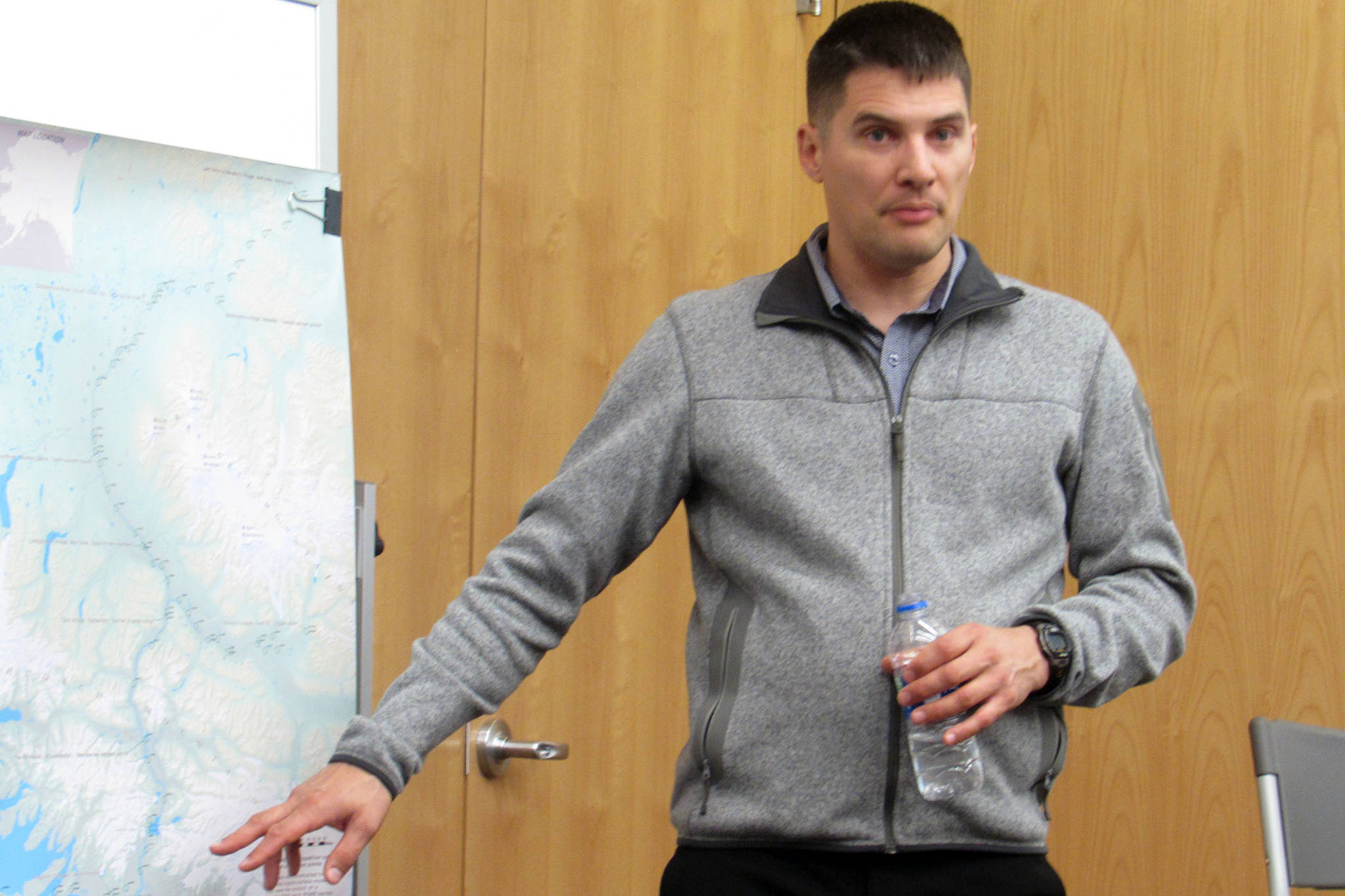Henry Allen’s trans-Alaska exploration in 1885 often gets called the Lewis and Clark Expedition of Alaska, but that’s not right, says Russ Vander Lugt, a PhD candidate in University of Alaska Fairbanks’ Arctic and Northern Studies program.
Vander Lugt, who is also a Lieutenant Colonel in the Army, gave a presentation on the Allen’s 1,500-mile journey Thursday at the Alaska State Library, Archives and Museum, where he is using the archives to further research Allen.
He said while there’s definitely parallels between the two exploratory efforts, it’s inaccurate to lump them together because of when and where they happened and the conduct of the parties.
[Crime bill would put more people in prison longer]
“It falls into a different time and place,” Vander Lugt said during his talk. “It’s almost like a bookend to Lewis and Clark.”
Also, while Meriwether Lewis and William Clark schlepped across the Western U.S. with goods and gifts with which to barter, Allen’s trek was a more bare-bones affair. The party often had to beg for food from the indigenous Ahtna people it came across while traveling from the Prince William Sound and along the Copper, Tanana, Koyukuk and Yukon rivers.
Vander Lugt said that hunger helped form a common bond with the Alaska Native people Allen encountered, and a friendly working relation with indigenous people is one of the reasons the expedition was ultimately successful.
A genuine effort by Allen to learn some of the Native language, communicate and avoid trespassing also helped, Vander Lugt said.
“Nowhere did he go where he wasn’t guided,” he said.
He said among westward expansion in the 19th century definitely features a large number of similar expeditions where indigenous people were mistreated or otherwise marked by regrettable actions, but Allen’s expedition stands out.
“I believe this is one of the things that was done right,” Vander Lugt said.
During the course of his research, Vander Lugt interviewed descendents of people who encountered Allen and company on their trek across Alaska, and the stories that were passed down were positive.
“It’s very remarkable that we have oral histories, and to this day, they’re still saying positive things about Allen,” Vander Lugt said.
While Allen was a compassionate military officer who insisted on feeding German children during occupation of Europe after World War, he was also a man of his time with views out of step with current thinking, Vander Lugt said.
Allen would write down and use Native place names and viewed Ahtna as people, but Vander Lugt said his writings suggest he viewed them as wards of the U.S. in need of charity.
[State budget cuts won’t help Juneau students]
However, he was not a clear-cut assimalist, Vander Lugt said, and instead seemed to espouse the idea that indigenous people should leverage their skills in resource industry.
“He was kind of a hybrid,” Vander Lugt said.
The sheer scope of Allen’s journey remains impressive even through a modern lens, Vander Lugt said.
Part of his research included flying in a military helicopter along the route that Allen took at about the same time of year.
Vander Lugt played audio during his presentation from colleagues who retraced the steps.
One person said it’s nearly unthinkable that a normal person was able to complete the expedition.
“It’s astounding that they actually made it through,” said another.
• Contact arts and culture reporter Ben Hohenstatt at (907)523-2243 or bhohenstatt@juneauempire.com. Follow him on Twitter at @BenHohenstatt.

